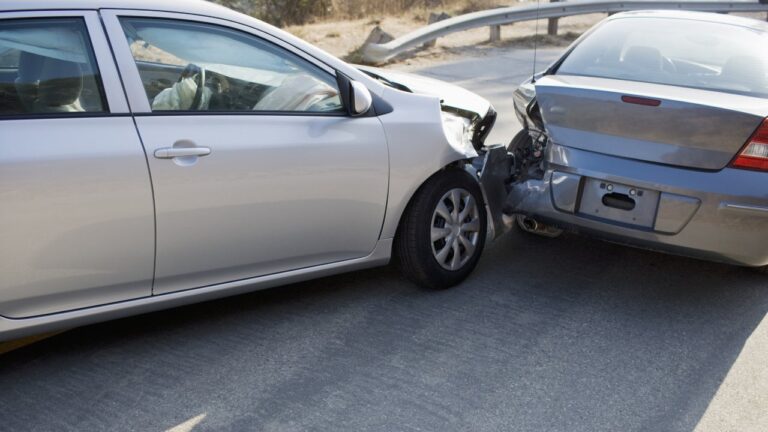Importance of Auto Insurance
Importance of Auto Insurance;Auto insurance is a crucial aspect of responsible vehicle ownership and operation. It provides financial protection against potential losses arising from accidents, theft, and other unforeseen events involving your vehicle. While many may view auto insurance as just another mandatory expense, its importance cannot be overstated. This article delves into the various dimensions of auto insurance, highlighting its significance, benefits, and the comprehensive protection it offers to drivers, passengers, and pedestrians alike.
The Foundation of Auto Insurance
Auto insurance is essentially a contract between the vehicle owner and an insurance company. The vehicle owner pays a premium, and in return, the insurance company agrees to cover certain types of losses as defined in the policy. The coverage typically includes liability for bodily injury and property damage, medical payments, uninsured and underinsured motorist coverage, and collision and comprehensive coverage.
Legal Requirement
In most jurisdictions, auto insurance is mandatory. This legal requirement ensures that all drivers have a minimum level of financial responsibility in the event of an accident. Without such a mandate, victims of accidents would have to rely on the at-fault driver’s ability to pay for damages out of pocket, which could be financially devastating.
Financial Protection
Auto insurance provides financial protection in several ways:
- Liability Coverage: This covers the costs associated with injuries or damage to other people or property if you are at fault in an accident. Without liability coverage, you could be sued for these costs, leading to significant financial hardship.
- Collision Coverage: This pays for damages to your own vehicle resulting from a collision with another vehicle or object. This is particularly important for newer or more expensive cars, where repair costs can be substantial.
- Comprehensive Coverage: This covers non-collision-related damages, such as those from theft, vandalism, natural disasters, and other perils. Comprehensive coverage ensures that you are protected against a wide range of risks that could otherwise leave you with hefty repair or replacement bills.
- Uninsured/Underinsured Motorist Coverage: This protects you if you are involved in an accident with a driver who either does not have insurance or whose insurance is insufficient to cover the damages.
- Medical Payments Coverage: This helps cover medical expenses for you and your passengers, regardless of who is at fault in an accident.
Benefits of Auto Insurance in Importance of Auto Insurance
Peace of Mind
One of the most significant benefits of having auto insurance is the peace of mind it offers. Knowing that you have financial protection in place allows you to drive with confidence, without constantly worrying about the potential costs of an accident or other unexpected events.
Protection Against Financial Loss
Accidents can be expensive. Repairing or replacing a damaged vehicle, covering medical bills, and compensating other parties involved in an accident can quickly add up. Auto insurance mitigates these financial risks, ensuring that you are not left bearing the full brunt of these costs.
Legal Protection
Auto insurance provides legal protection in the event of an accident. Insurance companies typically handle legal claims and settlements on your behalf, reducing your exposure to lawsuits and legal complications. This can save you time, stress, and additional expenses.
Access to Additional Services
Many auto insurance policies offer additional services such as roadside assistance, rental car reimbursement, and towing services. These benefits can be incredibly valuable if you find yourself stranded or in need of a temporary replacement vehicle.
The Impact on Society in Importance of Auto Insurance
Auto insurance is not just beneficial to individual policyholders; it also has a broader positive impact on society.
Promotes Responsible Driving
By mandating auto insurance, governments promote responsible driving behaviors. Drivers who know they are financially liable for their actions are more likely to adhere to traffic laws and drive cautiously. This leads to safer roads and fewer accidents.
Supports Economic Stability
Auto insurance contributes to economic stability by spreading the financial risk of accidents across a large pool of policyholders. This collective risk-sharing mechanism ensures that the financial burden of accidents is not borne solely by the individuals involved, thereby preventing severe economic disruption.
Reduces Public Healthcare Costs
Medical payments coverage in auto insurance helps reduce the strain on public healthcare systems. By ensuring that accident victims have access to necessary medical care without relying solely on public resources, auto insurance plays a role in maintaining the sustainability of healthcare services.
Types of Auto Insurance Coverage in Importance of Auto Insurance
Understanding the different types of auto insurance coverage is essential for selecting a policy that meets your needs. Here is a breakdown of the primary types of coverage:
Liability Insurance
Liability insurance is the most basic form of auto insurance and is typically required by law. It covers:
- Bodily Injury Liability: Pays for injuries that you cause to other people in an accident. It includes medical expenses, lost wages, and legal fees if you are sued.
- Property Damage Liability: Covers damage that you cause to another person’s property, such as their vehicle, fence, or building.
Collision Insurance
Collision insurance covers the cost of repairing or replacing your vehicle if it is damaged in a collision with another vehicle or object, regardless of who is at fault. This type of coverage is especially important for protecting your investment in your vehicle.
Comprehensive Insurance
Comprehensive insurance provides coverage for damages to your vehicle caused by events other than collisions. This includes theft, vandalism, natural disasters, fire, and falling objects. Comprehensive coverage ensures that you are protected against a wide range of potential hazards.
Uninsured/Underinsured Motorist Insurance
This coverage protects you if you are involved in an accident with a driver who either does not have insurance or whose insurance is insufficient to cover the damages. It can cover medical expenses, lost wages, and other damages that you might incur as a result of the accident.
Personal Injury Protection (PIP) or Medical Payments Coverage
PIP, also known as no-fault insurance, covers medical expenses for you and your passengers, regardless of who is at fault in an accident. In some states, PIP also covers lost wages and other related expenses. Medical payments coverage, while similar, typically does not cover lost wages but provides for medical expenses.
Choosing the Right Auto Insurance Policy in Importance of Auto Insurance
Selecting the right auto insurance policy involves considering several factors to ensure that you are adequately protected. Here are some key considerations:
Assess Your Needs
Evaluate your personal circumstances, including the value of your vehicle, your driving habits, and your financial situation. This will help you determine the types and amounts of coverage you need.
Compare Quotes
Obtain quotes from multiple insurance providers to compare coverage options and prices. Be sure to review the policy details carefully to understand what is included and excluded.
Consider the Deductible
The deductible is the amount you pay out of pocket before your insurance coverage kicks in. Higher deductibles typically result in lower premiums, but make sure you choose a deductible that you can afford in the event of a claim.
Look for Discounts
Many insurance companies offer discounts for various reasons, such as having a good driving record, bundling multiple policies, or installing safety features in your vehicle. Ask about available discounts to reduce your premium.
Review the Insurance Company’s Reputation
Research the reputation and financial stability of the insurance companies you are considering. Look for customer reviews, ratings from independent agencies, and information about their claims process to ensure you choose a reliable insurer.
The Claims Process in Importance of Auto Insurance
Understanding the auto insurance claims process is crucial for ensuring a smooth experience if you need to file a claim. Here are the typical steps involved:
Reporting the Incident
Immediately after an accident or other covered event, report the incident to your insurance company. Provide all necessary details, including the time, location, and nature of the incident, as well as any other involved parties’ information.
Documenting the Damage
Take photos of the damage to your vehicle and any other property involved. Keep copies of police reports, medical records, and any other relevant documentation to support your claim.
Working with an Adjuster
An insurance adjuster will assess the damage and determine the amount of compensation you are entitled to under your policy. Be prepared to provide additional information or documentation as requested.
Repairing Your Vehicle
Once your claim is approved, you can proceed with repairing your vehicle. Your insurance company may recommend certain repair shops, but you typically have the right to choose where to have your vehicle repaired.
Receiving Payment
After the repairs are completed, your insurance company will issue payment for the covered costs, minus your deductible. In cases where your vehicle is deemed a total loss, you will receive a payout based on the actual cash value of your vehicle.
Challenges and Misconceptions in Importance of Auto Insurance
While auto insurance provides essential protection, there are some common challenges and misconceptions that drivers should be aware of:
Misunderstanding Coverage Limits
Many drivers are unaware of their policy’s coverage limits and exclusions. It’s important to review your policy carefully to understand what is and isn’t covered, and to adjust your coverage as needed to ensure adequate protection.
Assuming Full Coverage Means All-Encompassing
“Full coverage” typically refers to a combination of liability, collision, and comprehensive insurance. However, it does not mean that you are covered for every possible scenario. Additional coverage options, such as rental reimbursement or gap insurance, may be necessary to fully protect yourself.
Ignoring Policy Updates
Your auto insurance needs may change over time, such as when you buy a new vehicle, move to a different area, or experience changes in your driving habits. Regularly review and update your policy to ensure it continues to meet your needs.
Delaying Claims
Some drivers hesitate to file claims, fearing that their premiums will increase. While it’s true that filing claims can impact your rates, failing to report incidents promptly can lead to denied claims and greater financial loss.
Conclusion on Importance of Auto Insurance
Auto insurance is a vital component of responsible vehicle ownership. It provides essential financial protection, promotes safer driving behaviors, and supports economic stability. By understanding the various types of coverage, selecting the right policy, and navigating the claims process effectively, drivers can ensure they are well-protected against the risks associated with driving. While it may be tempting to view auto insurance as just another expense, its importance in safeguarding your financial well-being and peace of mind cannot be overstated. Whether you are a new driver or a seasoned one, investing in comprehensive auto insurance is a prudent and necessary step towards responsible vehicle ownership and operation.





